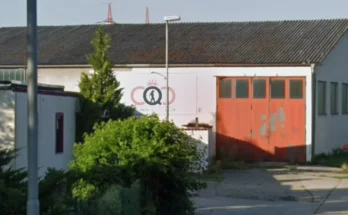Enhanced monitoring measures in the red-light district of Styria have uncovered a significant incident: A Romanian sex worker continued to provide sexual services within a brothel despite testing positive for gonorrhea, a potentially contagious condition. The 31-year-old knowingly endangered public health by engaging in this behavior, resulting in charges of deliberate endangerment of individuals through the transmission of communicable diseases.
She had gonorrhea
Gonorrhea, a common sexually transmitted infection, affects the mucous membranes of the urinary and reproductive organs, causing urethritis in men. During the trial in Graz, the defense attorney for the accused emphasized her client’s full acceptance of responsibility and voluntary cooperation with the legal proceedings. Notably, by the time law enforcement conducted testing, the defendant had already recovered from the infection. Consequently, her prior clean record and confession contributed to a lenient outcome—a fine of €630.
Additionally implicated in this case was the manager of the brothel, accused of facilitating the provision of accommodation for prostitution services despite being aware of the prostitute’s positive test result. In his defense, the accused expressed bewilderment at the charges, citing his absence from the premises on the day in question. The presiding judge ultimately acquitted him, citing insufficient evidence to demonstrate his ability to prevent the woman from working.
Remarkably, the sex worker’s detection during the inspection stemmed from her inability to produce a valid health certificate, referred to colloquially as a “lid” in the industry. Eva Winter, the director of the Graz Health Office, elucidated the standard protocol of mandatory testing every six weeks for gonorrhea and every twelve weeks for HIV and syphilis among sex workers. Should a positive diagnosis occur, the health certificate is temporarily revoked until the individual is deemed medically fit to resume activities.
Read more articles from this city
A brothel operator took a stand against illegal prostitution in apartments by placing provocatively dressed mannequins outside his establishment. This protest followed his previous attention-grabbing tactic of advertising for “girl testers” last year. The brothel owner highlighted the growing problem of illegal prostitution in residential areas, emphasizing its negative impact on legitimate businesses and potential criminal implications. He called for increased police powers and stricter penalties to address the issue: Graz brothel owner protested with mannequins against illegal prostitution
A trial in Graz involves six former brothel employees, including the manager, charged with selling 4.6 kilograms of cocaine to clients. The accused also face allegations of severe coercion, including threats to a customer with gambling debts. Years of undercover investigations led to the uncovering of these crimes, with one defense suggesting a revenge plot by the manager’s ex-lover. The trial sheds light on criminal activities in the red-light district, offering insights into its complexities: Comprehensive trial against Graz brothel reveals drug trafficking
The lifeless body of a 26-year-old Romanian woman, after being swept away by the Mur River in Graz, was discovered near the Mur Power Plant. The mysterious disappearance sparked an extensive search effort involving boats, divers, and aerial support. Despite these efforts, her whereabouts remained unknown until her tragic discovery over the weekend. An autopsy suggests her death was likely accidental, with no signs of foul play. She was employed at a local establishment called the “Laufhaus.” As investigations continue, the community and her family grapple with the profound loss: Lifeless body of missing Romanian woman found near Graz’s Mur power plant



